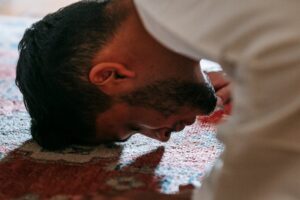A new year has fallen upon us. Not the kind of year that we are used to in accordance with the Gregorian calendar, but a new year according to the Hijri calendar. We have just been blessed by Allah (swt) to witness the commencement of the new Hijri year, 1442. It is the unfortunate reality that a large majority of us have become so fixated and in sync with the Gregorian calendar that we have completely forgotten the Islamic Hijri calendar.
As the name mentions, the Hijri calendar began with the migration of our beloved Prophet Muhammad (PBUH) and his followers from Mecca to Madina. However, the Prophet (PBUH) did not create the calendar. Rather, it was during the Khalifa of Omar Ibn Khattab that recognized the need for an Islamic calendar. As the Islamic ummah grew larger and became a global influence, Omar Ibn Khattab gathered the sahaba in the Masjid and they began discussing what important date or event should be used to mark the beginning of the Hijri calendar. Some suggested that it should begin with the death of the Prophet (PBUH), or the conquest of Badr, or the birth of the Prophet (PBUH), or the conquest of Mecca, and others. Until one of them suggested that it should begin with the Hijra of the Prophet (PBUH) and they all agreed because that was the year that the Muslim ummah changed and persecution was eliminated. That year was the turning point for the Muslim ummah.
The Hijra of the Prophet (PBUH) and his followers was a journey full of important lessons and miracles. As a result, we should make it an obligation upon ourselves as Muslims to learn and reflect upon this journey and apply these lessons to our own lives. One of the most important attributes of the Prophet (PBUH) was his attitude during the Hijra. Prophet Muhammad (PBUH) was being persecuted and oppressed immensely while in Mecca. So much so that he was left with no choice, but to leave. When he was left fleeing from Mecca, trying to escape persecution, and fearing for his life, he did so in a very calm manner. He had his faith in Allah (swt). The Prophet (PBUH) planned every step of his Hijra to Madina and he executed that plan. The plan was to take a secret route to Madina. The plan was to wait in a cave for three days. The plan was for Abdullah, the son of Abu Bakr, to listen to the news, find out what was happening, and use his flock of sheep to wipe away the footprints in the sand. The plan was for Asma’a, the daughter of Abu Bakr, to provide food and milk to the Prophet (PBUH) for three days. As we can see, the Prophet (PBUH) planned out his Hijra down to every detail. However, he made his plan while being conscious and having complete faith and submission to Allah (swt). Our beloved Messenger (PBUH) had so much taqwa in Allah (swt) and His plan that he remained calm throughout this difficult time.
Of the lessons to be learned from the Hijra, is that victory is given to the righteous. Victory will be given to the people of taqwa, who fear and have full trust in Allah (swt). Eight years after the Hijra, Prophet Muhammad (PBUH) and his followers returned and conquered Mecca. The same man who fled Mecca to escape the persecution and oppression he was facing came back a few years later to conquer the same city that exiled him. No one could have predicted such an outcome.
This is the characteristic of a believer. In times of fear, stress, and hardship, you put your full trust and tawakkul in Allah (swt) in a humble manner. Of the many lessons of the Hijra, is that Allah’s (swt) help will only come to us after we have demonstrated patience. We will never have victory or Allah’s help without being tested for our patience. The Hijra has no limit. We do not need to migrate from persecution for the sake of Allah to do a Hijra. We do Hijra everyday. We can make a Hijra from our sins to the forgiveness of Allah (swt). We can migrate to the protection of Allah (swt) from the deception of the dunya. These are amongst the most significant lessons to be learned and applied to our lives from the Hijra of the Prophet (PBUH). With taqwa, or fear and trust in Allah (swt), comes victory. With patience during times of stress and hardship, comes victory.
By Ahmad Salah




